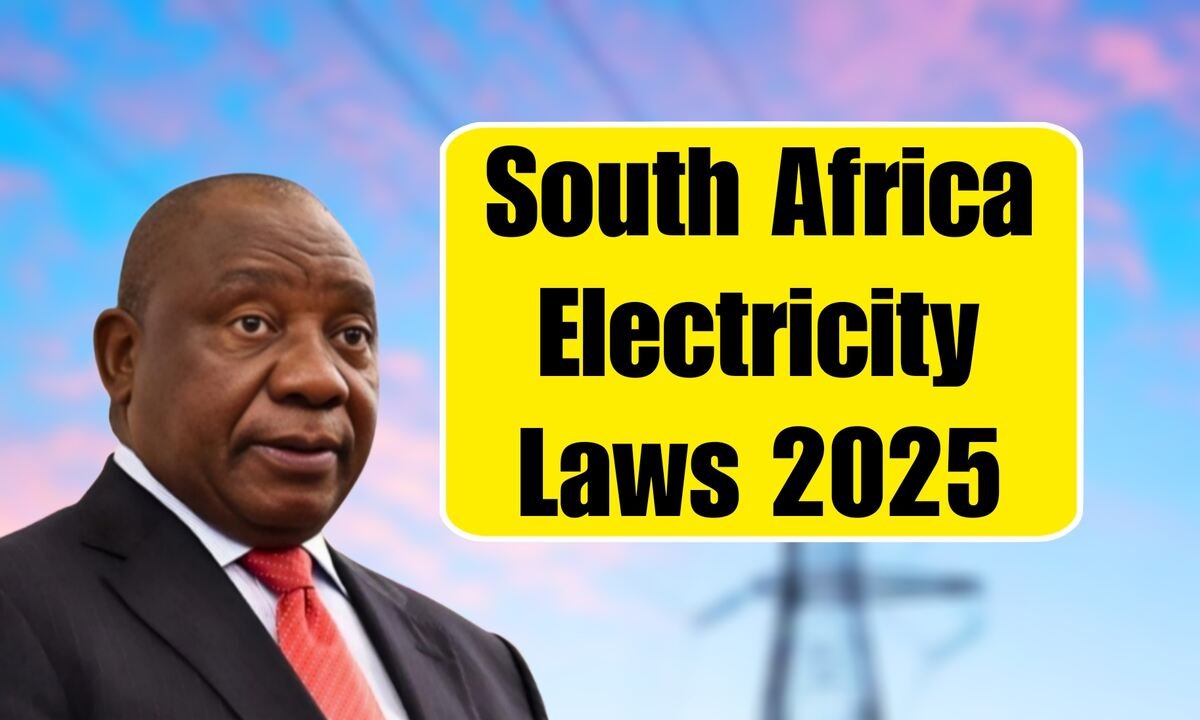South Africa Electricity Laws 2025 : The energy landscape of South Africa is at its turning point after a long time, with the government set to implement new electricity laws in 2025 that will ensure the supply is stable, the process is transparent, and the creation of renewables is incentivized. The reforms starting in November 2025 will have an impact on households, small businesses, and large energy consumers right across the nation.
The Department of Mineral Resources and Energy (DMRE) declared that the new regulations are part of the Electricity Regulation Amendment Bill, which aims to bring the South African power sector into the modern world after years of load-shedding, financial struggles, and infrastructures problems at Eskom.
01. Independent Power Producers (IPPs) Get More Freedom
The most radical alteration of the reforms in 2025 is that Independent Power Producers (IPPs) will now have more rights than before to produce, sell, and even trade electricity with the consumers and municipalities directly. The idea behind this is not only to cut down on Eskom’s customer base but to incentivize competition among the players in the energy market.
For consumers this means, in the first place, they will be able to get the power from the suppliers in the solar and wind sectors that are both cheaper and more reliable. At the same time, municipalities will be allowed to enter into agreements with the private energy companies, which is seen as one of the ways to reduce the strain on the national grid.
02. Stricter Licensing And Compliance Rules
The new laws will result in stricter licensing rules for both public and private electricity suppliers. Each supplier will have to apply to the National Energy Regulator of South Africa (NERSA) and meet the new requirements in pricing, safety, and eco-friendliness.
Consumers will receive electricity bills that are easier to understand and tariffs that are more open, due to the fact that suppliers will have to reveal their methods for calculating electricity costs.
03. Push For Renewable Energy And Smart Infrastructure
The changes not only aimed at reducing pollution but also, opened up the possibility of using even more green energy by providing the taxpayers with a slice of the cake in the form of tax incentives and subsidies for solar energy installations, battery storage, and energy-efficient home improvements.
Installation of smart meters will be made obligatory in new buildings, thus enabling the already existing ones to monitor the consumption of electricity live, which is a move towards eliminating waste and reducing the monthly bills.
04. What Consumers Should Do Now
The South African government suggests that citizens continue to stay updated about the changes, since they will inform the way you pay and the users of electricity. Know from your closest local authority or electricity company what your region’s new lighting regulations, tariffs, and billing procedures are like starting from 2025.
Also Read: SASSA R2,315 Pension Grant November 2025 – Full Eligibility And Payment Details Revealed
